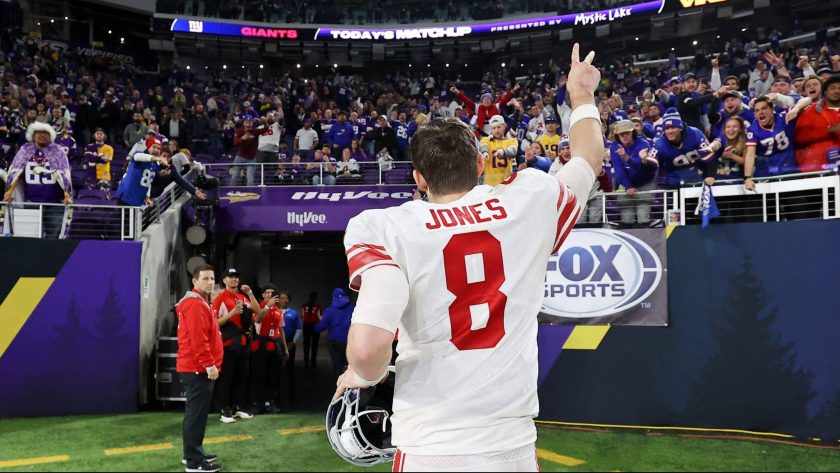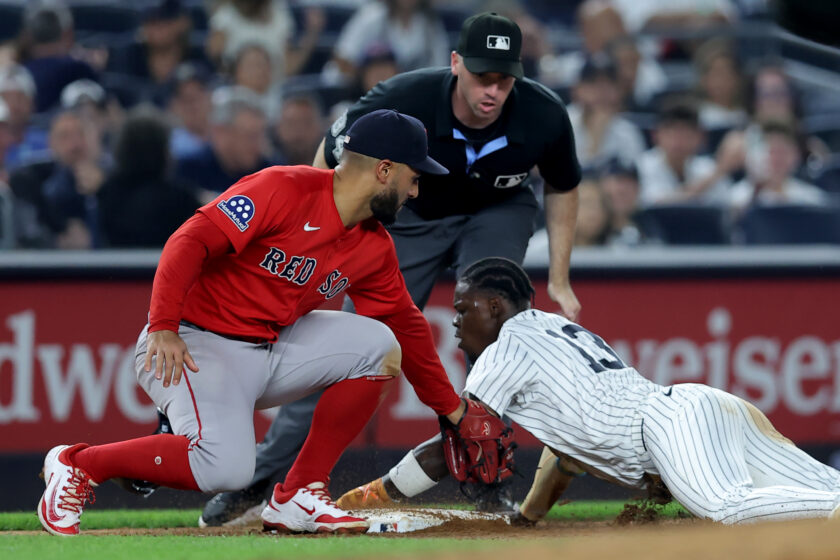FanDuel, DraftKings Advocate for Reduced New York Online Sports Betting Tax Rate

A 51% New York online sports betting tax rate may not be sustainable if the state hopes to continue its sports betting market success, according to two leaders of the largest operators in the country.
DraftKings CEO Jason Robins and FanDuel President Christian Genetski testified at Tuesday’s Senate Standing Committee on Racing, Gaming, and Wagering public hearing on New York’s first year of online sports betting, warning that without a reduction of the state’s 51% online sports betting tax rate, operators may be forced to take action that would negatively affect New York’s market.
Both shared their support for an introduced bill from Sen. Joseph P. Addabbo Jr. (D-15) that would see increased operators and a reduced tax rate in the state by 2024.
New York Tax Rate Unsustainable for Success
Despite New York’s massive success in its first year of online sports betting, Genetski said there are evident signs that its market has peaked. New York’s online sports betting handle has decreased by more than 20% after its first three months of operation.
The decline in handle correlates with the nine sports betting operators decreasing their promotional and marketing investments in the state.
“The cause of underperformance is not a mystery. It’s the pullback of investment by operators in the market,” Genetski said.
New York launched online sports betting in January 2022 and quickly became the top sports betting market in the country.
In its first year, New York online sports betting resulted in more than $700 million in sports betting tax revenue, and $200 million in licensing fees from online sports betting operators. In total, the state took in more than $909.2 million in sports betting revenues.
These tax revenues, Robins and Genetski warned, will likely decrease moving forward as operators are hammered by the tax rate and continue to withdraw spend in New York.
Support for Bill to Increase Operators, Reduce Tax Rate
This is an untenable tax rate for the state, Robins warned members of the racing, gaming, and wagering committee.
“The market is built on an unstable foundation, namely a 51% tax rate, which is by far the highest in the country,” he said.
Implementing a lower and more sustainable online sports betting tax rate will shore up New York’s sports betting market and ensure success of its operators.
Even something at the level of Pennsylvania, which has a 36% online sports betting tax rate, would allow operators to re-institute promotional and marketing spends they’ve cut in the past year.
The national online sports betting tax rate averages out to just 13%, he said.
The success of online sports betting operators, such as DraftKings and FanDuel, and the state are intertwined, Robbins said. The more revenue brought in by operators, the more taxes for the state.
Operators have pulled back their promotional and marketing spends in New York, Robins said, as it became clear the investments would be too costly moving forward into the year.
Without a reduced tax rate, Robins said DraftKings will have to consider implementing worse odds on bets for customers, further reducing bet promotions or eliminating them altogether, and even cutting sponsorship deals with New York professional sports teams.
All this adds up to customers leaving New York and crossing borders to bet in states with better odds and more promotions.
“Hopefully its clear to everyone that New York will not be able to meet its multi-year revenue targets at this tax rate,” he said.
He and Genetski both stumped for a bill introduced by Addabbo Jr. to expand New York online sports betting operators to 14 by Jan. 31, 2024, and no less than 15 by Jan. 31, 2025, and reduce the tax rate concurrent to the number of additional operators.
Ten to 12 operators would see an online sports betting tax rate of 50%; 13 to 14 operators a 35% tax rate; and 15 or more operators would see a tax rate of 25%.
Both also urged the legislators to approve iGaming in the state.
Reduced Promo and Incentive Tax?
Assemblyman J. Gary Pretlow (D-89) asked the sports betting operator leaders if allowing the companies to deduct promotional and free bets would make up for keeping the tax rate at 51%.
Robins said it would be a step in the right direction, but to be able to maximize revenues a reduction in the tax rate would likely be necessary as well.
Despite pleas to reduce the rate, New York legislators will have a difficult decision moving into this year’s budget season.
After all, as Addabbo reminded the two leaders, there was never a sunset provision for the 51% tax rate, there were never any promises to reduce the rate, and the operators agreed to the tax rate in their bid packages for licenses.
Robins said DraftKings knew of the potential difficulties operating in a state with such a high tax rate, but willingly entered the New York market and chose to invest in an unsustainable way in the first three months with the hope that the rate would be reconfigured.
DraftKings “would still rather be here than not,” even with a 51% tax rate, but may have to make some changes that would negatively affect the market and its customers moving forward, he said.
Covering regulatory developments in online gambling throughout this fine country.






